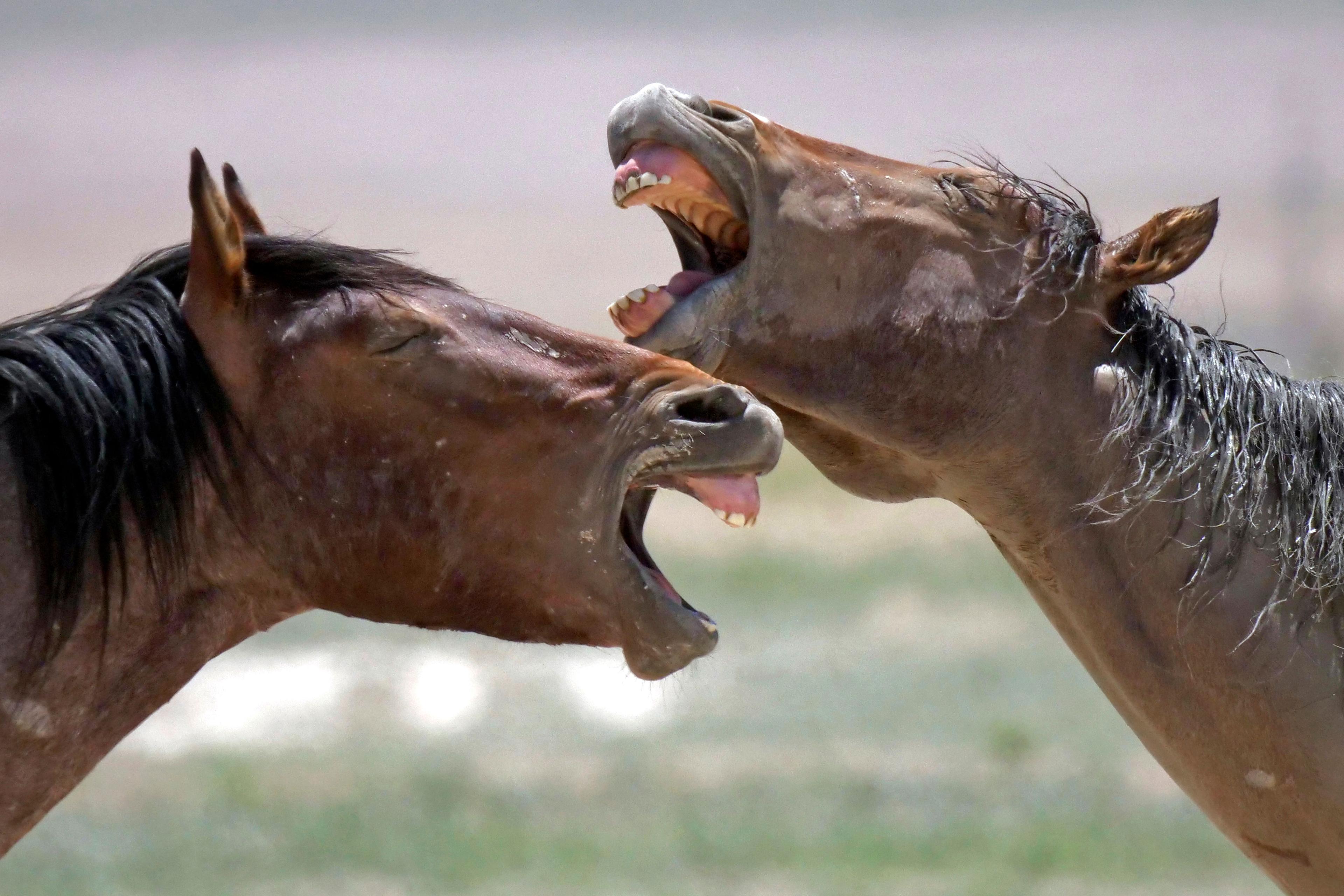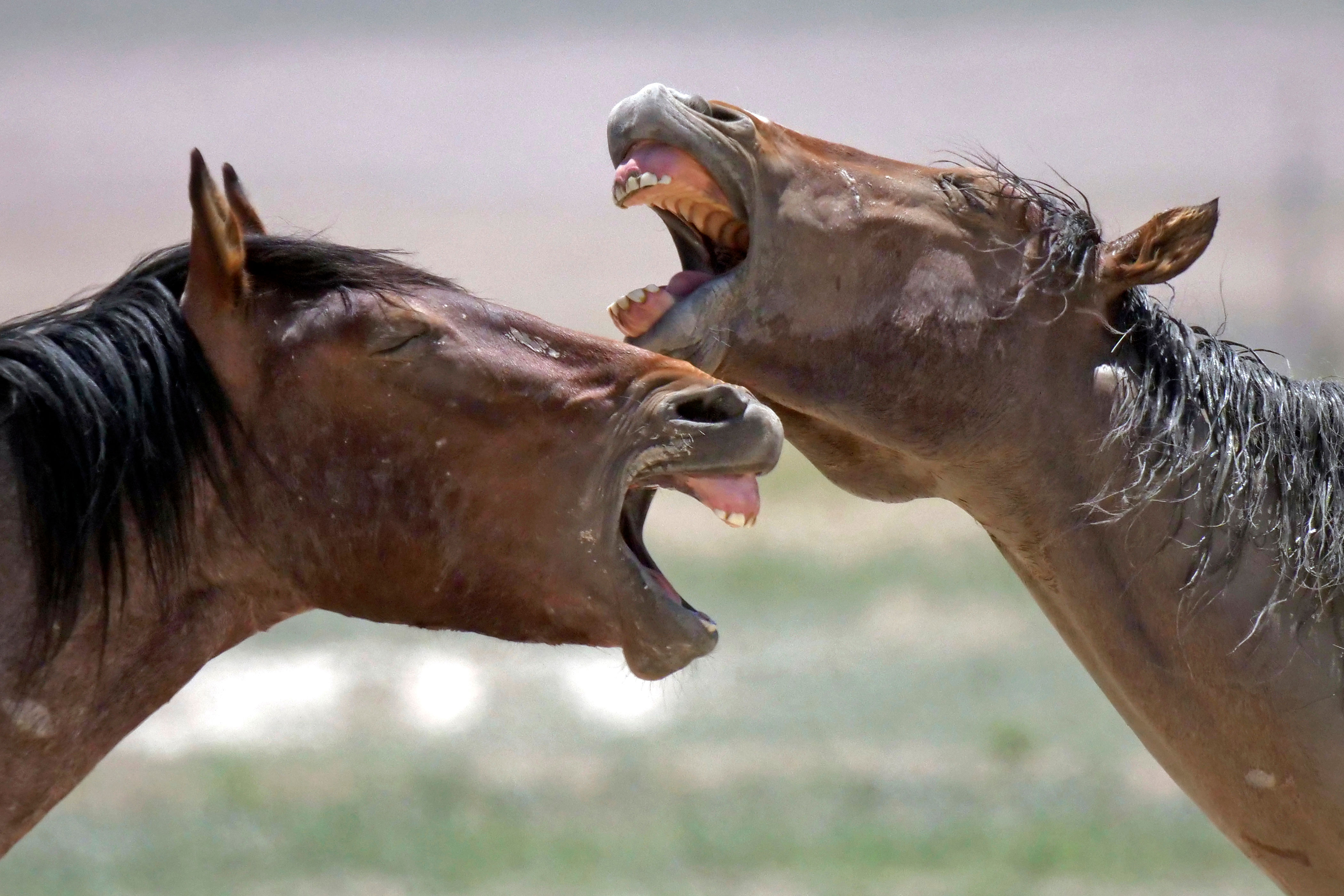

The Bureau of Land Management has begun its plans to remove some wild horses from the Little Book Cliffs Horse Range near Grand Junction. But the fate of other herds remain in limbo.
About 30 percent of the Little Book Cliffs herd will be trapped by the BLM to minimize overgrazing, the Grand Junction Sentinel reported. Beckie Diehl, a volunteer with the nonprofit Friends of the Mustangs, which is helping with the roundup, told the Sentinel the grass conditions on the range are the worst she's ever seen.
“There is virtually no grass out here,” she said.
- Previously: Drought Forces Emergency Roundups
Drought conditions have limited vegetation and water sources for wild horses in much of the West, including herds in Colorado. Wild horses in the Sand Wash Basin northwest of Craig are also struggling, said a volunteer from Wild Horse Warriors, another horse advocacy group.
Cindy Wright, co-founder of the organization, said the group has been hauling water to horses since early July. At first, volunteers were taking water once every other day, but Wright said those hauls have increased to everyday.
“When we were given permission to start hauling water, within a week we saw a huge improvement in the immediate area where we first took the tanks,” she said.
The Sand Wash Basin is on 157,000 acres of BLM land. The land can only support about about 362 horses, but there are more than 750 horses living there, Wright said.
The BLM has applied for funding twice to remove some of the horses, including an emergency roundup. However, funding requests for both have been denied, Wright said.
“Part of problem is not just what we’re dealing with locally. It’s what the nation is dealing with, with the horses and part of reason we haven’t gotten the funds is because there’s so many other [herd management areas] that are so over their [appropriate management levels] that they became priorities.”
The BLM and Wild Horse Warriors have worked together to help maintain the horses’ health for the time being and before conditions worsened, Wright said.
Volunteers have also begun refilling natural ponds in the basin so that when it rains, the water collects in pools rather than being absorbed into the soil. The mud in these ponds help keep bugs off the horses. And, if the water were to freeze in the winter, the horses can chip away at the ice and still access water.
Despite all these efforts, Wright is worried and scared for what the herds’ future may hold.
“I’m a Colorado native. I’ve watched this cycle with the deer and the elk for many many years. And if we don’t have a gather this fall and we don’t get the predicted hard winter that we’re supposed to… then we’re going to lose horses.” she said.
Wright said she thinks the best way to help manage wild horse populations is with birth control. And she said there are a lot of options out there, but no action like the gather in the Little Book Cliffs is being taken.
“There’s going to have to be some really tough decisions made, some out of the box thinking,” she said. “We simply can’t keep going the way we’re going.”









